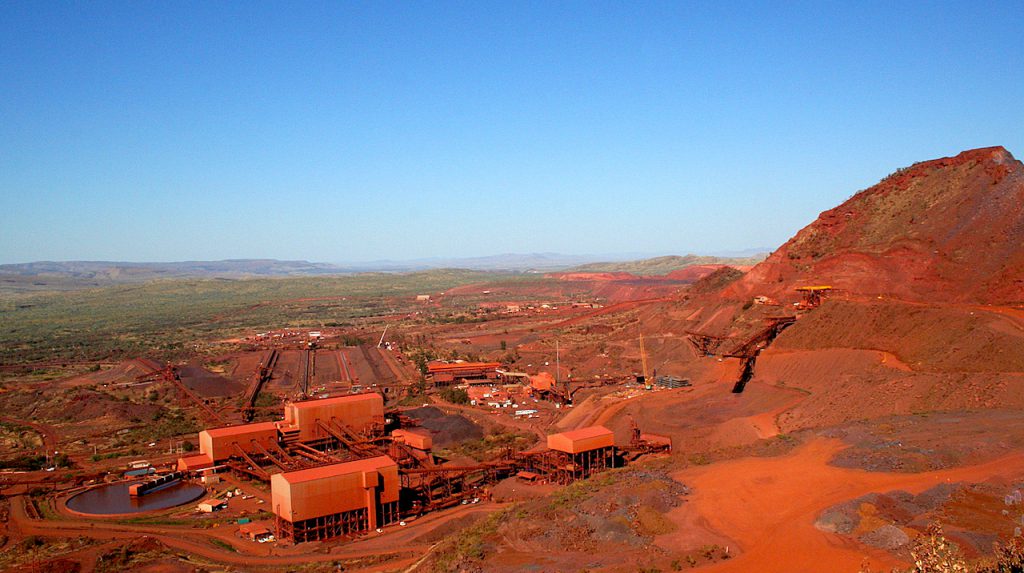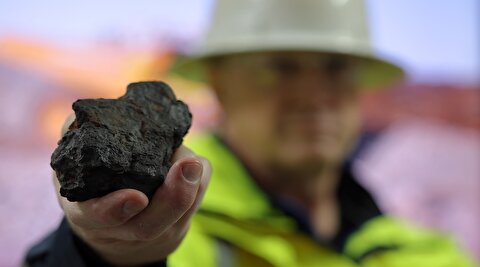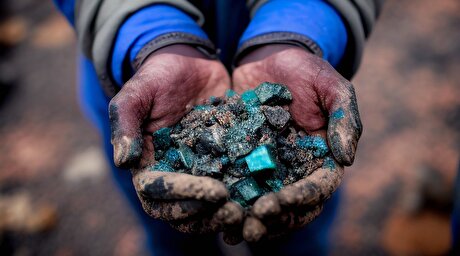
Australia’s iron ore giants push workers to stay at mine sites to escape coronavirus

Rio Tinto , BHP and Fortescue are moving workers who would usually commute from major cities by aeroplane to stay on site for a minimum of two weeks, they said in separate statements.
Rio Tinto , BHP and Fortescue are moving workers who would usually commute from major cities by aeroplane to stay on site for a minimum of two weeks
Fortescue workers would move to a roster of two weeks on and two off, or four weeks on and two off, cutting staff movement by 40 percent for a “significant decrease” in risk, the world’s fourth biggest iron ore miner said.
The measures are expected to last for at least three and as many as six months.
“We recognise it is a big ask for our people to be away from families on a different roster pattern at short notice and we will do everything we can to support them during these difficult times,” Rio Tinto said.
Western Australia declared a state of emergency and closed its borders this week to all but “essential” workers.
Mine workers living in cities who fly in and fly out for work at remote mine sites were exempted, but a ban will take effect from Monday for such workers from Australia’s worst-stricken state of New South Wales.
Australia’s infection rate is slower than many other nations, but officials are concerned infections have accelerated over the last week and plan to deploy the military to ensure people comply with orders to isolate themselves.
Analysts have flagged an outbreak as a major threat to mine operations, particularly as staff work in close proximity in enclosed areas underground.
Western Australia accounts for more than half of global output of the steel-making ingredient expected to rake in A$101 billion ($61 billion) this fiscal year as the country’s top export revenue earner.
That role is particularly critical for the economy as Australia faces its first recession in nearly three decades.
Fortescue and Rio Tinto were pushing to accommodate workers near remote mine sites or Western Australia’s capital of Perth, but not offering adequate compensation, the state unit of the Construction, Forestry, Maritime, Mining and Energy Union said.
“Only BHP has offered generous arrangements that would cover accommodation costs and recognize the impact on families if workers move west temporarily,” it said.
Rio Tinto declined to comment on compensation. Fortescue had no immediate comment.
All the miners said they were working to improve the safety of workers and mining communities. They are some of the biggest employers of indigenous Australians and many miners operate near remote communities.
Authorities see the virus as a major risk to some of those communities. as they are far from major hospitals and suffer a greater prevalence of underlying health issues.


Barrick’s Reko Diq in line for $410M ADB backing

Trump weighs using $2 billion in CHIPS Act funding for critical minerals

Pan American locks in $2.1B takeover of MAG Silver

US adds copper, potash, silicon in critical minerals list shake-up

Trump raises stakes over Resolution Copper project with BHP, Rio Tinto CEOs at White House

Gold price gains 1% as Powell gives dovish signal

Gold boom drives rising costs for Aussie producers

Giustra-backed mining firm teams up with informal miners in Colombia

US seeks to stockpile cobalt for first time in decades

Kyrgyzstan kicks off underground gold mining at Kumtor

Kyrgyzstan kicks off underground gold mining at Kumtor

KoBold Metals granted lithium exploration rights in Congo

Freeport Indonesia to wrap up Gresik plant repairs by early September

Energy Fuels soars on Vulcan Elements partnership

Northern Dynasty sticks to proposal in battle to lift Pebble mine veto

Giustra-backed mining firm teams up with informal miners in Colombia

Critical Metals signs agreement to supply rare earth to US government-funded facility

China extends rare earth controls to imported material

Galan Lithium proceeds with $13M financing for Argentina project

Kyrgyzstan kicks off underground gold mining at Kumtor

Freeport Indonesia to wrap up Gresik plant repairs by early September

Energy Fuels soars on Vulcan Elements partnership

Northern Dynasty sticks to proposal in battle to lift Pebble mine veto

Giustra-backed mining firm teams up with informal miners in Colombia

Critical Metals signs agreement to supply rare earth to US government-funded facility

China extends rare earth controls to imported material

Galan Lithium proceeds with $13M financing for Argentina project

Silver price touches $39 as market weighs rate cut outlook

















